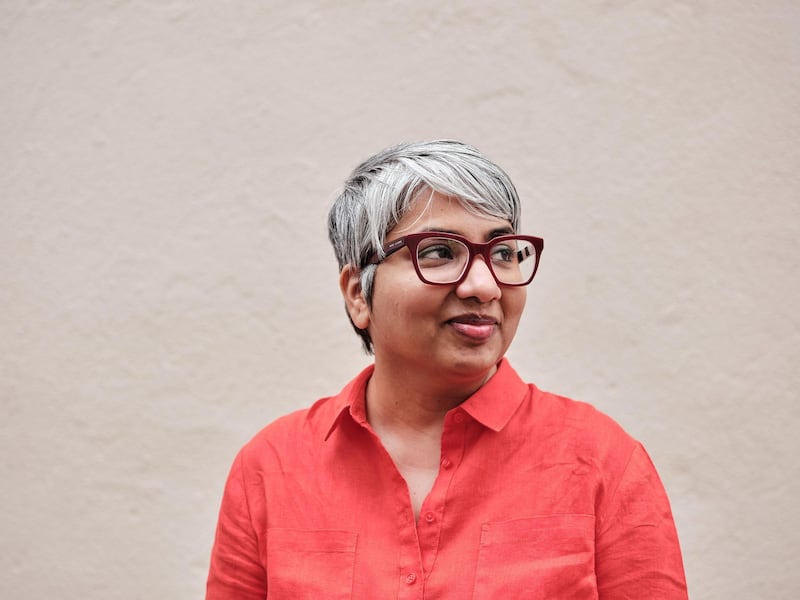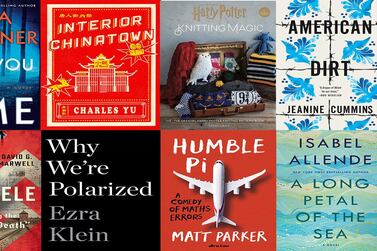Jai, 9, loves television. In his family's one-room house in an unnamed Indian basti, the TV is "the best thing we own". So when this cheeky, brave young narrator realises his classmate is missing from their sprawling slum, Jai does what comes naturally and uses the skills he's picked up from obsessively watching reality cop show Police Patrol to try to find him.
It's a wonderful, exuberant start to Deepa Anappara's debut novel, Djinn Patrol on the Purple Line, which has caught the attention of book lovers. Anyone who enjoyed Slumdog Millionaire, Lion or even Philip Pullman's His Dark Materials will find a lot to like here. Just don't buy Anappara's book for your own 9-year-old.
And that's the high-wire act Anappara performs here. She admits that for some readers of literary fiction, child narrators are a turn-off. And while the opening sections of the book might be vibrant, almost comic book-like, by the end – as more children disappear and a harsh air of urban noir develops while Jai is forced to confront his awful reality – it's a completely different novel.
"Oh goodness, no, I absolutely wouldn't expect children to read it," Anappara says from her home in the east of England. "The topics in the book are adult, grown-up. It's an examination of what it's like to live in those parts of India neglected by the outside world, in these places where child disappearances happen. Yes, it's a child's view of society, but that doesn't make it a children's book."
Still, given Anappara's background, seeing this world through the eyes of a boy makes perfect sense. As a journalist in India reporting on poverty and religious violence, she came across countless stories of children disappearing, with seemingly no imperative to find them because they had no money, or followed the "wrong religion".
"I spent a significant proportion of my time speaking to or writing about children," she says. "But their voices either weren't in my news stories – obviously, because they were missing – or I wasn't really able to communicate how funny and cheeky they were in a news section. So Jai and the other characters came from that place."
It took about nine years and a move to England for Anappara to work Jai out, even though the questions around these disappearing children remained. "It's really hard to get a child's voice right," she admits.
But because it's a novel that goes to dark places, it's Jai's persona that offers much-needed levity in a story that could easily have turned into a fictional version of Katherine Boo's 2012 book on Mumbai slum Annawadi, Behind The Beautiful Forevers.
"In the books I admire that try this – Tayari Jones's Leaving Atlanta, or Jamil Jan Kochai's 99 Nights In Logar – the child's viewpoint makes a familiar situation unfamiliar," she says. "They also have that sense of wonder and discovery which means they don't fully understand what's going on but which also tempers the harshness of the realities of their lives. What Jai sees at his eye level, what he notices, is different from any adult's perspective. I think that's what makes him so interesting."
Anappara says she thinks Djinn Patrol On The Purple Line is essentially a book about how we understand ourselves through stories and how we turn to them when we're not getting answers from people who should be accountable. In Jai's community, that plays out in a belief system that allows for ghosts, djinn and spirits. Hence the book's title.
"I see this in my own life all the time and it's so integral to so many communities," Anappara says. "You can be a firm atheist, even, but when you're in a challenging situation and have nowhere else to turn, I think you naturally find solace and comfort in a kind of supernatural storytelling. That very easily comes into play in a situation you can't control or comprehend."
The novel was finished as part of Anappara's master's degree in creative writing at the University of East Anglia in Norwich, England. But even though the majority of the first draft was written in an India she was born in and knows well, it hasn't insulated her from the accusation she is somehow romanticising poverty. She was moved to write a response in The Times that she wasn't fashioning a "novelistic slum tour".
"Like writing from a child's perspective, there's a risk in writing about poverty – so I was doubly worried," she says. "It can seem that you are trying to present a certain view of India to the West and this has always been a criticism of Indian writers, particularly those who move away."
Still, it was a combination of personal grief and loss – which she says "collapsed the distance" between her and her characters – and the political imperative of her journalism that gave Anappara the confidence that she was on the right track.
“If you take the marginalisation and alienation of Muslim communities in the book, well, that’s something that’s been going on in India for years,” she says. “Perhaps people outside are more aware of it now, but it can’t be ignored or avoided if you live in this community. You can’t isolate yourself from it.
“At the same time, I didn’t write about Muslim communities in India to create awareness as much as reflect something that can’t be avoided in the daily lives of my characters.”
It's fascinating spending some time with Anappara. For all that her book is moving, energetic and witty, she's quiet, thoughtful, serious even. Perhaps having to write that article in The Times has led the author to raise her guard somewhat, although most of the early reviews of her book have been incredibly positive and it's already been translated into 17 languages. But despite its depictions of cruelty and indifference, does Anappara think Djinn Patrol On The Purple Line is a hopeful book?
"I think so," she says. "The children show resilience and in the act of trying to solve the mystery of the disappearances, there's a refusal to be passive. They assert themselves, so that's where the hope comes from."
As for Anappara herself, she's back in creative writing academia, writing a historical novel for her doctorate. "I keep writing … and deleting," she says. "But right now, with my debut out in the world, I'm excited, wracked with nerves and trying not to read too many reviews."
She probably should read a few, at least.
Djinn Patrol On The Purple Line (Chatto & Windus) is out now. deepa-anappara.com












